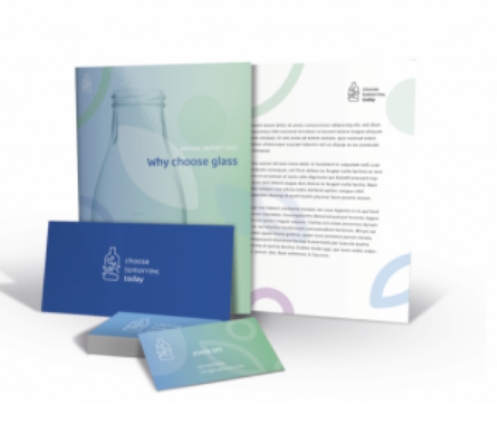Hitting the ‘innovation sweet spot’: How Gerresheimer’s new sustainable technology brings big environmental benefits to glass production
From a focus on holistic wellness to a search for greener products all round, the modern consumer is voting with their wallet and looking for brands that put purpose before profit – and no business wants to find themselves playing catch-up with what consumers have come to expect from their favourite products in today’s highly competitive market.
As the demand for eco-friendly options such as glass packaging grows, so does the relevance of sustainable brand positioning. The glass industry has long been offering ever-greener glass packaging solutions, with a shared vision for what the Furnaces of the Future may look like, and Gerresheimer is the latest to step up to the climate challenge with its new hybrid furnace technology used in glass production. Here is why it matters.
Offering a strong business incentive for climate-neutral glass production
Glass is infinitely recyclable, but there’s no denying that it is traditionally an energy-intensive industry, because of the high temperatures required for glass production. Melting using natural gas accounts for 80% of the industry’s emissions.
We can remove these emissions if we transition to electric power. To tackle the CO2 emissions generated in glass manufacturing, companies through Europe are transitioning to climate-neutral production, by investing in designing breakthrough technology and scaling up electric melting at a commercial scale.
That’s why Gerresheimer is pursuing a large-scale hybrid furnace, aiming to build a glass melting furnace for white glass in 2024 for its plant in Lohr, Germany with approximately 50% electrical glass melting fed by renewable energies . It covers half of the required melting energy in the furnace with green electricity and the other half with natural gas – saving significantly more CO2 than conventional technology.
This cutting-edge technology not only boosts energy efficiency, lowers costs, and decreases CO2 emissions, but also has long-term social benefits. It lays the groundwork for greater sustainable glass production to offer brands greener alternatives, while also lowering the company’s carbon footprint. Gerresheimer’s plants in Germany set the bar high for the rest of the company’s plants in Europe, America, and Asia to supply customers with sustainable packaging.
In the words of Andreas Kohl, Gerresheimer’s Group Global Senior Vice President Operations:
“This pioneering technology project serves to strengthen Germany as an industrial and glass location. With this innovative technology we will set new standards in terms of sustainability and avoidance of emissions.”
“By using this sustainable furnace technology in conjunction with green energy for the glass melting process, we will significantly reduce CO2 emissions in production by around 25,000 tonnes per year.“
However, industry effort on its own is not enough: financial support will be instrumental in making breakthroughs, as well as political support to provide the enabling framework for this industrial revolution. To this end, Gerresheimer has submitted a funding application to the German Federal Ministry for the Environment for this pioneering innovative project.
Environmentally-friendly by design
The Gerresheimer Group has been working for more than a decade to ensure that its glass containers are produced with no more energy than absolutely necessary for sustainable production for the pharma, cosmetics and food industries. With two melting furnaces producing clear and amber glass, the Lohr plant produces over one billion glass containers each year. In addition, the company announced that all new products starting from 2023 have passed a systematic eco-design process and assessment to be sure that the product is the most sustainable and in-line with customer expectations.
Helping you to future-proof your brand
Glass is recyclable and protects the integrity of the product inside. By optimising glass production technology to be carbon neutral, Gerresheimer can increase product desirability and future-proof goods – bringing value to brands and retailers who rely on glass packaging to stand out on the shelves.
For example, Gerresheimer is working to future-proof luxury perfume and cosmetics through packaging produced with new decarbonisation initiatives. On behalf of Oriflame, it produces flacons for the new Swedish Experience Perfumes Wild Hearts and Blazing Warmth. This includes the use of PCR (post-consumer recycling) glass to reduce energy consumption and waste, as well as innovative technologies that enable eco-design principles and optimised weight reduction of glass. What’s more, the two Gerresheimer production facilities for cosmetics packaging in Momignies, Belgium, and Tettau, Germany, are leading manufacturers of glass containers made of PCR.
Stylish and sustainable perfume – what could be better?
As the world continues to strive towards meeting the 2030 Agenda for Sustainable Development, the container glass industry will continue to innovate to offer sustainable packaging options to the brands and retailers who partner with us, and the consumers who rely on them in turn. Because glass is a natural choice for helping the world to achieve sustainability targets by 2030, 2050 and beyond – it’s the future, made clear.
Gerresheimer produces glass containers for numerous well-known branded products in the pharma and cosmetics world at its German sites in Essen and Tettau. As part of its global sustainability strategy, Gerresheimer has set itself the goal of reducing its CO2 emissions by 50% by 2030 compared with 2019. The resource-saving production of glass plays a decisive role in this. The innovative technology planned for the plant in Lohr is pioneering in this respect.



